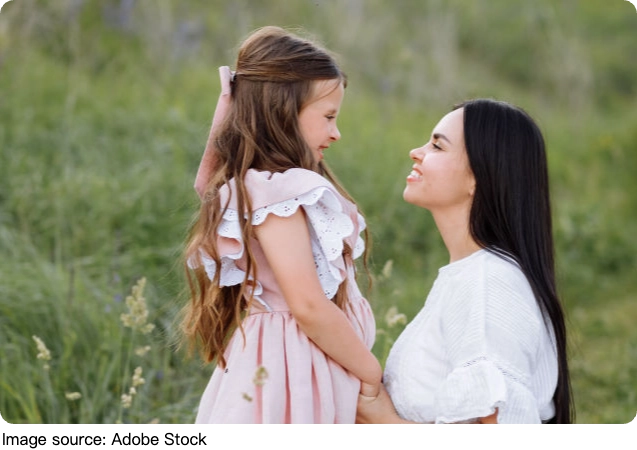Parent-Child Balance

A healthy relationship between parents and children is the emotional foundation of a happy home. It affects how children see the world, how they handle challenges, and how they build relationships as they grow.
For us as parents or caregivers, maintaining this bond is both meaningful and sometimes challenging—especially as kids grow older and become more independent. The good news is, we don't need to be perfect. What matters most is consistency, patience, and a lot of love.
Listen more, talk less
One of the best ways to build trust with our children is to truly listen. Often, we rush to give advice or fix problems. But sometimes, our kids just need someone to hear them. Let's ask open-ended questions like, "How was your day?" and give them space to answer.
When we listen without judging or interrupting, our children feel safe. They learn that their thoughts are valued, and they become more likely to open up in the future.
Respect their feelings—even the big ones
Children experience strong emotions, just like adults. Whether it's frustration, sadness, or fear, these feelings are real. Instead of saying "don't cry" or "you're overreacting," we can try responses like, "I see this really upset you," or "It's okay to feel that way."
By acknowledging their emotions, we teach them how to process feelings instead of hiding them. This strengthens our emotional connection and helps them feel understood.
Set boundaries with kindness
A healthy relationship isn't about saying yes to everything—it's about providing clear limits in a loving way. Children actually feel safer when there are boundaries, as long as they are fair and explained calmly.
For example, instead of saying, "Because I said so," we can explain, "We're turning off screens at 9 p.m. so your brain can rest before bed." When kids understand the reason behind a rule, they're more likely to respect it.

Spend quality time together
Life can get busy, but even 15 minutes of focused time with our child each day makes a difference. That could mean reading a book together, cooking dinner, playing a board game, or just chatting during a walk.
The key is being present—no phones, no distractions. These small, consistent moments send a big message: "You matter to me."
Encourage independence
As children grow, they naturally want to make more choices on their own. It can be tempting to jump in and do things for them, but letting them try builds confidence. Whether it's choosing clothes, packing lunch, or solving a problem, these little steps help them grow.
We can guide them gently, offering support when needed, while giving them room to learn. Independence and trust often grow together.
Apologize and admit mistakes
Nobody gets parenting right all the time. We may raise our voice, forget something important, or make a decision too quickly. When that happens, saying "I'm sorry" teaches our children an important lesson about honesty and humility.
It shows them that making mistakes is okay—and that what matters is how we respond afterward. This builds respect both ways.

Grow with them
As our children move from toddlers to teens to adults, their needs change—and so should our parenting style. What worked at age five may not work at fifteen. Staying flexible and open-minded allows us to adapt and grow alongside them.
Being a parent is also a learning journey. When we're willing to grow, we show our children that learning never stops—and that love means adapting, not controlling.
Let's build strong bonds that last
A healthy parent-child relationship doesn't happen overnight. It's built slowly—through trust, understanding, shared moments, and genuine care. There will be bumps along the way, but with open hearts and daily effort, we can create a connection that lasts for life.
So Lykkers, what's one small thing you do to stay close with your child or your parent? Let's share and learn from each other—because every family has its own beautiful way to love.
-
 Quokka Adventure TimeWhy We Can't Stop Smiling at Quokkas—The Tiny Australian Hoppers That Melt Our Hearts!
Quokka Adventure TimeWhy We Can't Stop Smiling at Quokkas—The Tiny Australian Hoppers That Melt Our Hearts! -
 Timeless Strokes in DesignDiscover how traditional calligraphy techniques inspire modern font creativity and emotion!
Timeless Strokes in DesignDiscover how traditional calligraphy techniques inspire modern font creativity and emotion! -
 Veggie Power Boost10 Super Vegetables That Can Boost Our Health and Energy—You Won’t Believe How Easy They Are to Add to Meals!
Veggie Power Boost10 Super Vegetables That Can Boost Our Health and Energy—You Won’t Believe How Easy They Are to Add to Meals!